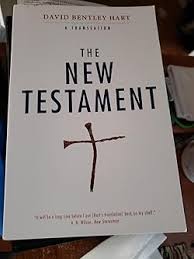On September 10 of the year just passed Bernard-Henri Levy published his new book Israel Alone. I have read several of Levy's books since returning to Judaism in 2017, so I read this one eagerly.
Levy made clear that on campuses in Europe and America, Jew haters were attacking Jews with impunity. Western leaders kept saying there must be a cease fire no matter how many Jews are raped or murdered. Israel did seem quite alone and embattled. Hezbollah attacked from the north. Iran had attacked with a barrage of missiles. The Houthis were firing ballistic missiles from Yemen. Hamas continued to hide in hospitals and use Gazans as human shields.
Israel looked quite alone.
As I read the book, I realized the deep lament at the center of this brief book had receded somewhat. A week after the book was published, Israel attacked Hezbollah killing and maiming thousands of its tactical leaders in the Pager Attack. Terrorists taking a huge dose of their own medicine.
Before the month ended Hassan Nasrallah and most of the top leaders of Hezbollah were dead in an air strike that showed how deeply Israel had penetrated the terrorist organization. Then Israel smashed the Hezbollah rocket launchers and attack tunnels on its border.
Israel attacked Iran and took out all of Irans air defenses. Israel or any other of Iran's enemies with an air force could attack at will. A month later, pro-Russian/Iranian Syria collapsed. The Russians are gone. The Iranian supply route to Lebanon is gone.
The Trump administration takes office with Trump threatening there will be "all Hell to pay" if Hamas does not release all of the hostages from the October 7, 2023, attack on Israel.
Among the predictions of chaos after January 20, many believe Trump will begin mass deportations. He may. But several of Trump's cabinet picks have plans to revoke the visas of students who are supporting Hamas and other terrorist groups. The first deportations may be terrorist supporters on visas. There will be nomass protest of deporting those who cheer Hamas and other terrorists.
Israel is still largely alone, but since Levy's book was published, Israel has crushed several of its enemies and winners always have friends.




















